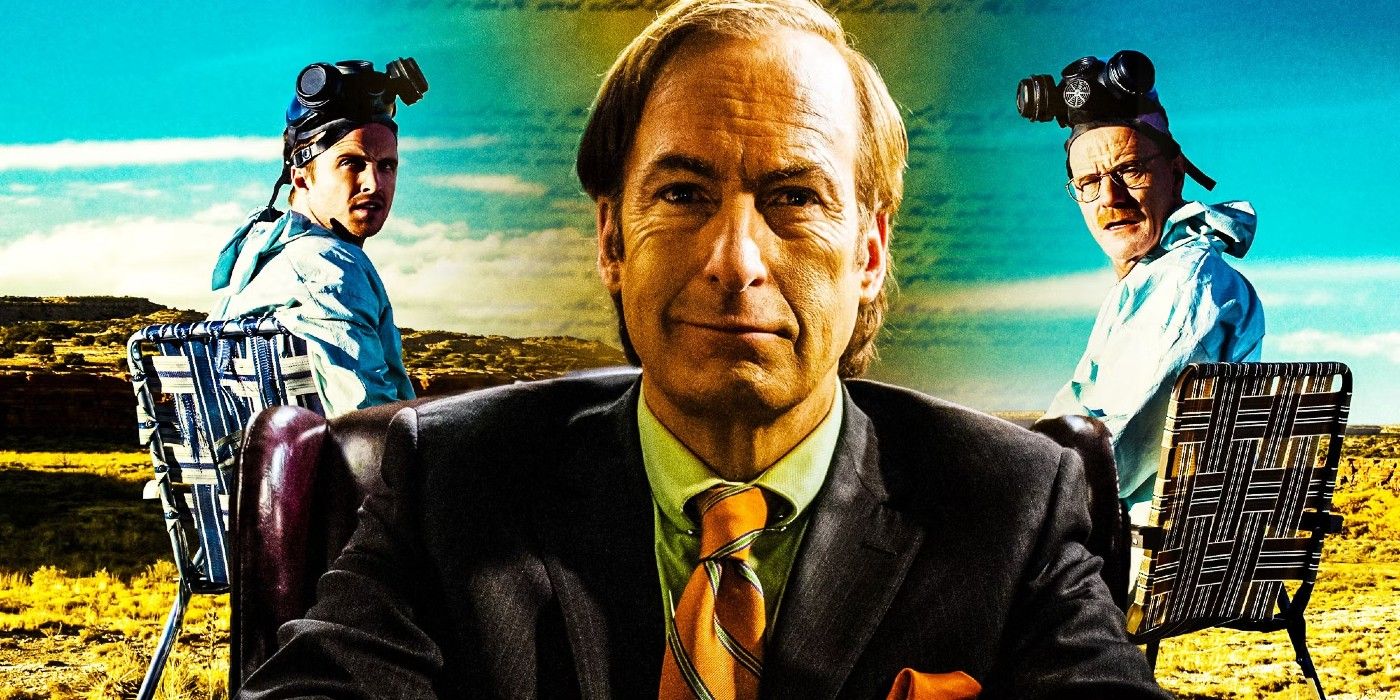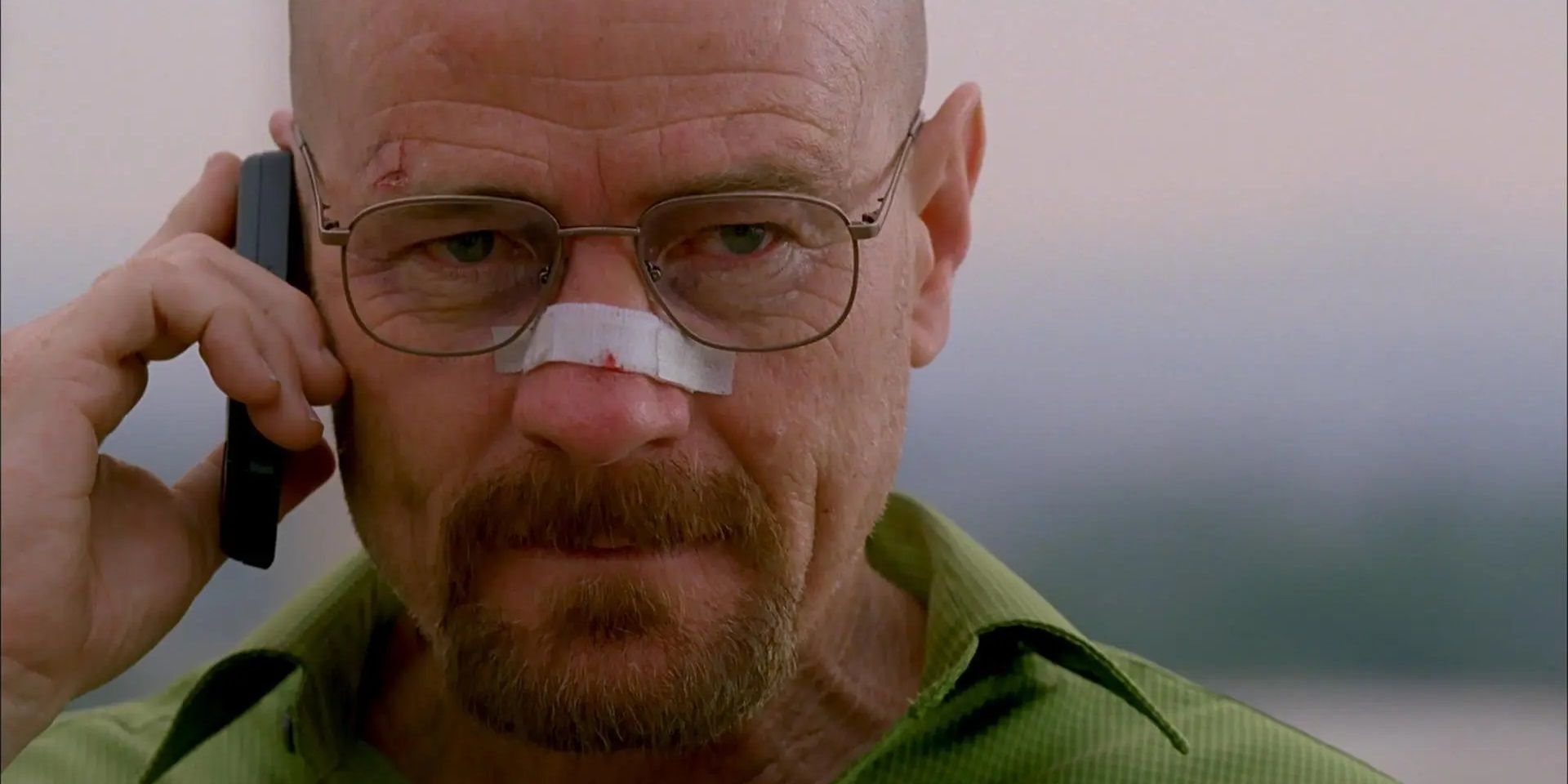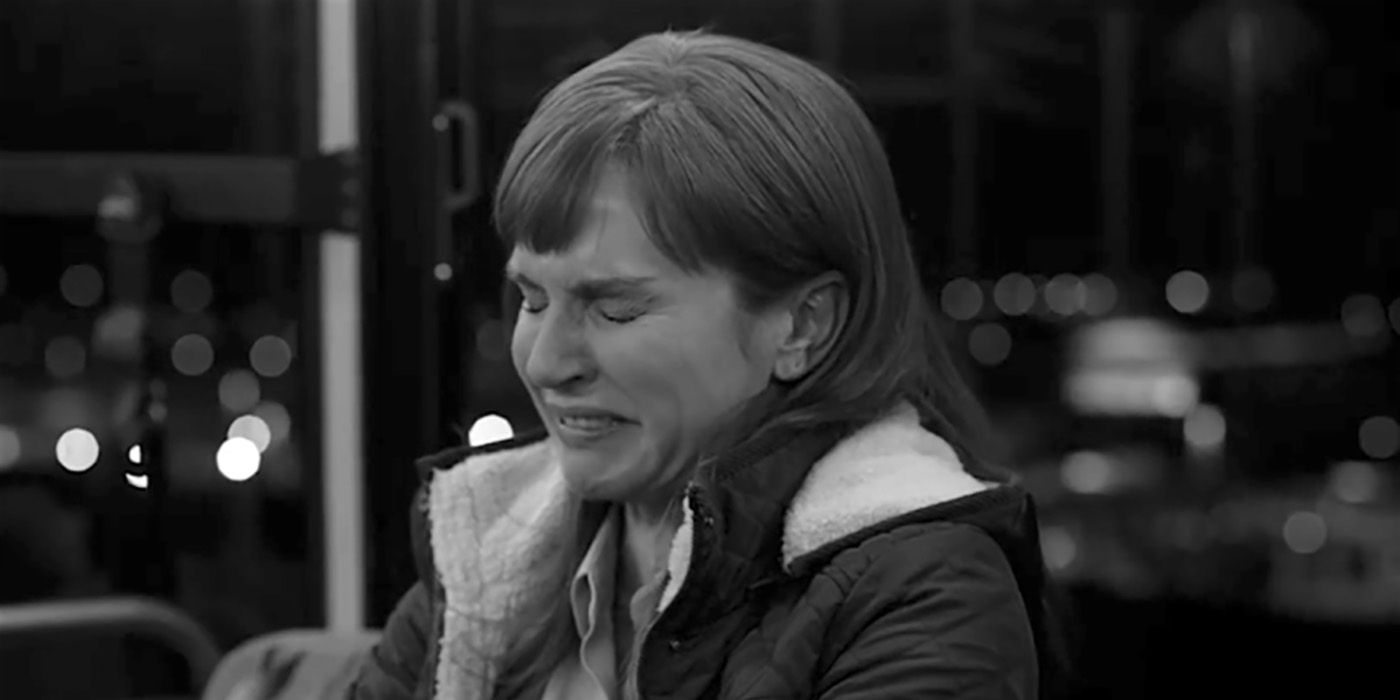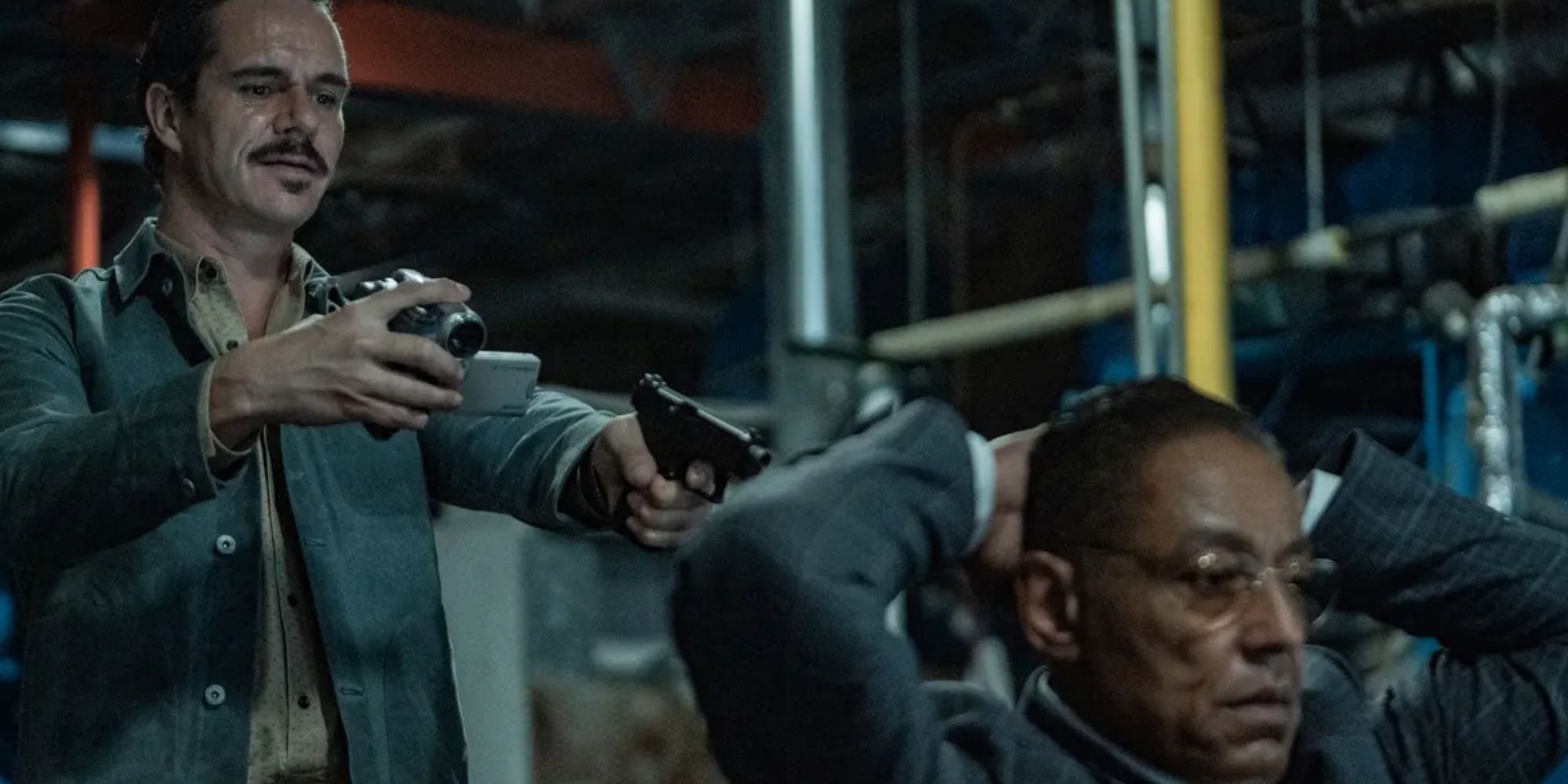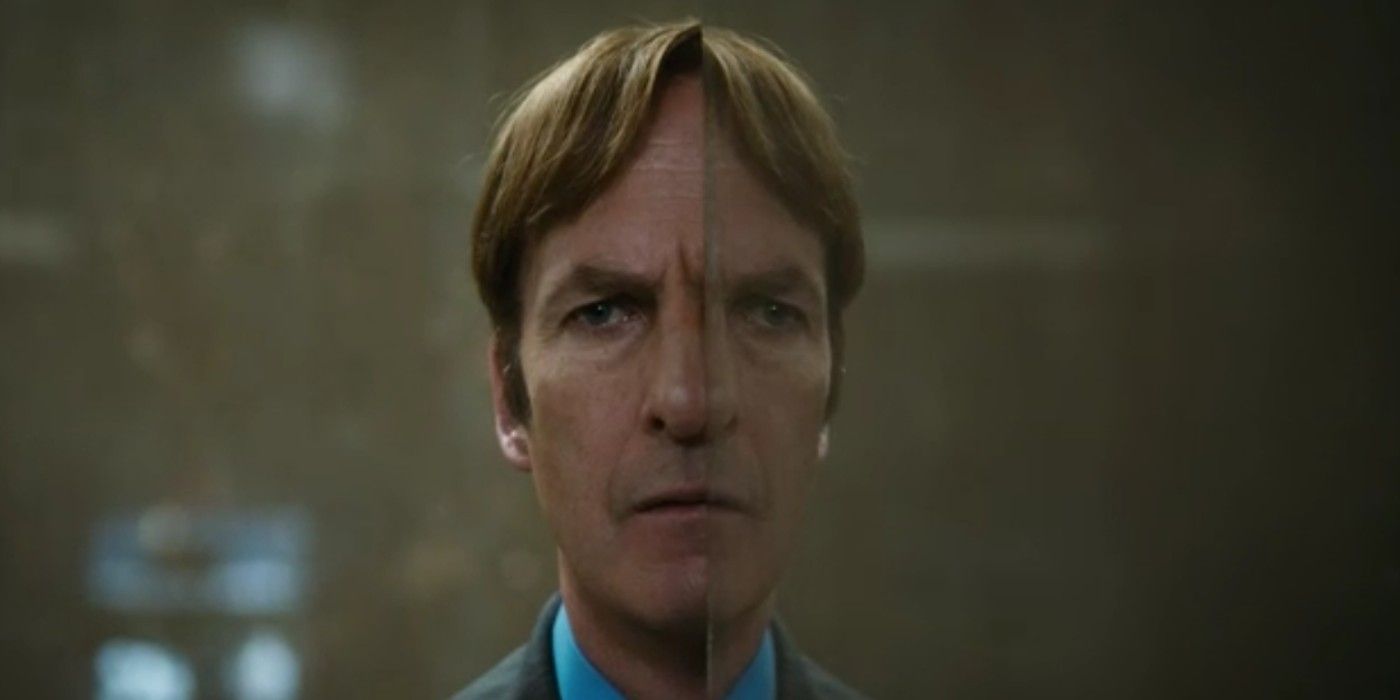Need a TV spinoff that actually surpasses the original instead of forever being remembered as a failed cash-in of a beloved franchise? Better Call Saul! Created by Vince Gilligan and starring Bryan Cranston alongside Aaron Paul, Breaking Bad grew to become one of TV's most revered shows of all time during its five-season run between 2008 and 2013. Not only did Walter White and Jesse Pinkman defy the law of diminishing returns (season 3's "Fly" is the only real divisive episode out of 62), Breaking Bad also bucked the trend of disappointing last episodes. "Felina" will forever be remembered as a note perfect farewell that flies directly in the face of the "you can't please everyone" attitude toward series finales.
Needless to say, Breaking Bad left a ridiculously high bar for future projects, so when Vince Gilligan and Peter Gould began working on Better Call Saul - a prequel spinoff centered around Bob Odenkirk's Jimmy McGill - audiences questioned their wisdom. Spinoffs have such a bad track record of success and Breaking Bad's cultural impact already defied all reasonable logic. Surely Better Call Saul continuing the Breaking Bad story was like volunteering to perform on the Wembley stage immediately after Queen at Live Aid 1985...
Better Call Saul aired its final episode ("Saul Gone") in August 2022, and Jimmy McGill's spinoff leaves a very familiar legacy - sustained and enthusiastic praise from audiences and critics, capped by an ending that satisfies across the board. Accordingly, choosing a favorite between Breaking Bad and Better Call Saul is like choosing a preferred child. Both are excellent TV shows with negligible flaws, seamlessly intertwined to exist either in isolation or as a greater whole. But if pick between them we must, here's why Better Call Saul has the edge over Breaking Bad.
Better Call Saul Reaps The Benefit Of Breaking Bad's Experience
Breaking Bad's premiere is an iconic piece of television, and Walter White's story doesn't take long before finding its rhythm. As with any TV show, however, Breaking Bad spends a little time establishing itself across seasons 1 and 2 - finding its voice, building the fictional universe, settling into a tone, etc. Vince Gilligan and co. were finding their way in Breaking Bad's early days, filling out those all-important character and story details as they went. Breaking Bad season 1 came into the world with very few assurances, and Gilligan has acknowledged (via EW) that he was mostly just happy to have a TV series at first. Even though Breaking Bad comes across as a cohesive, expertly-crafted narrative, the ending actually didn't begin taking shape until around season 4.
By the time Better Call Saul rolled around in 2015, those foundations had already been laid, and that voice had already been found. Better Call Saul may strike a slightly different tonal chord to Breaking Bad, but the spinoff brings a day-one maturity that only comes from having a successful TV show already behind it. The (admittedly endearing) whiff of naivety and uncertainty found in Breaking Bad's early episodes is replaced by swagger and confidence.
Unlike Breaking Bad, Jimmy McGill's story also began with certain assurances over longevity (as much as any TV show can have assurances over its longevity). With a passionate, loyal audience and several buried barrels full of good will, Better Call Saul shows a restraint and patience that most original shows - Breaking Bad included - can't necessarily afford. Rather than burst from the gate all guns blazing, Gilligan and Gould could let Better Call Saul evolve organically from a quieter, more considered spinoff into a veritable bloodbath - a luxury earned entirely by Breaking Bad's huge success.
Better Call Saul Shows Greater Depth Of Character
It feels nigh-on blasphemous to suggest Breaking Bad's character development is lacking in any way. Walter White and Jesse Pinkman are among the greatest television characters of all time, and with Hank Schrader, Skyler White and Gus Fring, it's no overstatement to say depth of character is one of Breaking Bad's strong suits. Nevertheless, it's no secret that in comparison to Better Call Saul, Breaking Bad is the more raucous, adrenaline-fueled, high-octane series. If they were siblings, Better Call Saul would be Chuck and Breaking Bad would be Jimmy (ironically).
What Better Call Saul takes away in the action department, it compensates with detailed character studies. Vince Gilligan and Peter Gould's spinoff is almost forensic in its depiction of Bob Odenkirk's Jimmy McGill and Rhea Seehorn's Kim Wexler, but the difference between shows is far more obvious in supporting characters Mike Ehrmantraut (Jonathan Banks) and Gustavo Fring (Giancarlo Esposito). Both criminals enjoy major roles in both shows, but it's Better Call Saul that digs its claws deeper into their motivations, fears, backgrounds and development. The spinoff charts Mike's gradual downfall as much as it does Jimmy McGill's, and somehow manages to humanize the despicable Chicken Man. Breaking Bad's character work is exemplary, sure, but Better Call Saul really takes Mike's "no half measures" philosophy to heart, dedicating itself wholly to character above all else.
Better Call Saul's philosophy isn't inherently superior to Breaking Bad's. Some viewers will prefer the character-centric approach; others will enjoy the sweet smell of Breaking Bad's dripping adrenaline. Regardless, there's no denying Better Call Saul carefully picks its moments to up the ante (season 5's desert shootout, season 6's spate of major deaths, etc.) This laser-focus makes Jimmy's action scenes all the more effective and powerful when they do happen.
Better Call Saul Builds Intrigue Better Than Breaking Bad
Better Call Saul being a more considered, patient proposition compared to Breaking Bad affords Jimmy McGill's solo series more opportunities to build intrigue. The overriding questions throughout Breaking Bad's five seasons are whether Walter White will get away with his crimes, and who will die in the process. A few notable exceptions aside (such as the relevance of season 2's pink bear and Jesse not knowing Walt let Jane die), Breaking Bad rarely lets a mystery rumble on beyond a single season.
This is where Better Call Saul's patience proves a difference-maker between shows. From the very first black-and-white shot of "Gene," Better Call Saul builds a mystery over Jimmy's future that isn't answered until the final episodes. Audiences pored over the fates of Kim and Nacho ahead of every season, while the significance of Jimmy's Breaking Bad Lalo line didn't become apparent until season 6. Perhaps the best long-term storytelling example is Saul casually asking Francesca to make a phone call on a specific date in Better Call Saul season 4. No more is said on this topic until she finally carries out the instruction over two whole seasons later. The way Better Call Saul lets these mysteries fester in the audience's mind for years creates a level of intrigue that even surpasses Breaking Bad.
Better Call Saul Perfectly Combines Two Separate Shows
Most TV spinoffs are stale rehashes of their parent series, but Better Call Saul adopts an ambitious structure that sets Jimmy's story apart from both Breaking Bad and the broader landscape of televised drama. Better Call Saul is, at its core, two distinct ideas intertwined to compliment each other perfectly. On one hand, there's the legal drama - the tale of a wannabe underdog lawyer who falls in love, goes too far in a rivalry with his brother, and pulls masterful scams. This half of Better Call Saul happens independently to Breaking Bad and functions as a show in its own right. On the other, you've got the Breaking Bad prequel that explains how certain characters evolved and how the landscape of Albuquerque's underworld was set before Walter White's arrival.
These dueling aspects merge into a more unique experience than Breaking Bad. Viewers simultaneously watch a brand-new show and their favorite show coming to life, as events in one timeline explain certain beats and nuances from another. When Better Call Saul began, many would've hoped the spinoff could either escape Breaking Bad's shadow, or somehow enhance Walt and Jesse's story with illuminating new details. Few dared dream Better Call Saul would achieve both, and the sheer ambition to create a spinoff that wholly embraces its predecessor whilst also existing in a totally different realm exemplifies why Better Call Saul has an ever-so-slight edge over Breaking Bad.

